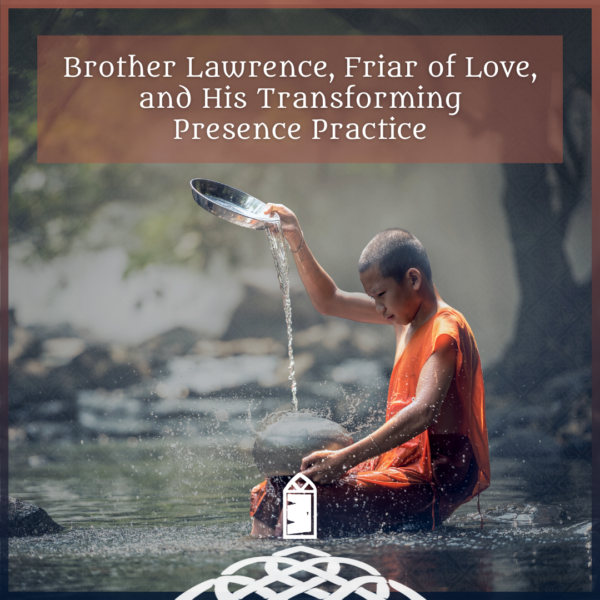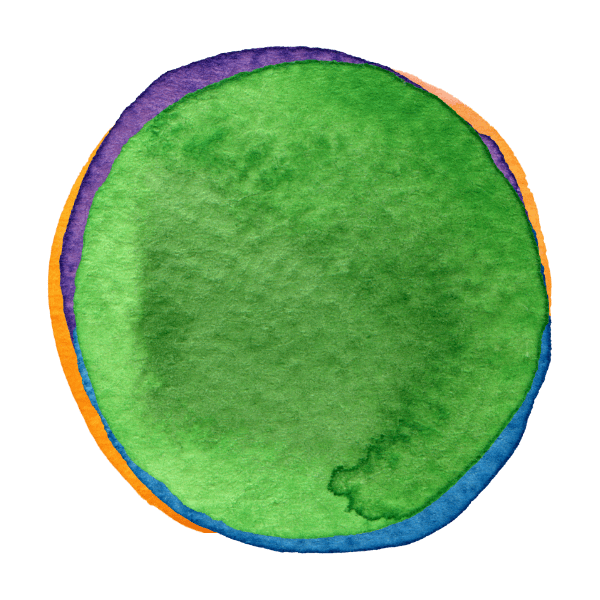For the season of Easter I made a commitment to practice resurrection of the body, both my own body and the Earth’s body. It has been a good process as I continue to discover places of my own healing and how they are woven together with the healing of the greater body.
As a part of this journey I started seeing a nutritionist whose approach to food I love. When we first sat down and she asked about my previous experiences with seeing a nutritionist, I told her that the couple of times I had gone before they had me try different variations of a detox diet, which never made me feel any better and just contributed to my confusion over what are the right things to eat. I also have a somewhat ambivalent view toward supplements because I have taken many over the years with unclear results, find them expensive, and feel like I should be getting my nutrition from food. She smiled and we went through the session, she recommended several foods to try to help with some of the health issues I am dealing with and at the end I asked her opinion on detox and supplements. “I rarely use them”–she replied, “I want to bring back the pleasure to eating and try to address nutritional deficiencies with food.” I knew right then I could work with her. She is a big proponent of eating whole foods, preferably (as in the case of milk) in their raw, natural form as well as fermented foods that help digestion. Reducing fat in foods strips their nutrition away and leaves us feeling less satisfied when we eat them.
She also works a lot with a book I read a year ago titled The Slow Down Diet: Eating for Pleasure, Energy, and Weight Loss by Marc David and absolutely loved. I only wish they had not used the word “diet” in the title, because it’s not a diet book at all (and I have banned “diet” from my vocabulary), but a book about ways of eating with much deeper awareness. We live in a culture that makes billions of dollars from weight loss programs and lowfat foods, yet as a whole we are only gaining more weight and becoming less healthy. In our rush to get things done we have become disconnected from the very substances that sustain and nourish us.
Two other books that I have recently read and have had a profound impact on the way I look at food are: Plenty: One Man, One Woman, and a Raucous Year of Eating Locally by Alisa Smith and J.B. MacKinnon, a couple living in Vancouver, BC who try for one year to eat foods grown and produced within a hundred miles and talk about “traceability” — how far back we can trace the foods we’ve eaten to their source (for most of us, it stops at the supermarket), and Real Food: What to Eat and Why
by Nina Planck which made me a complete convert to the superior nutritional value of whole raw milk and grass-fed beef. She has compiled a lot of interesting research about eating different kinds of foods, especially from what she calls “traditional” cultures. Interestingly, there are no traditional cultures that are vegan, because she argues, it is not a long-term sustainable way of eating for humans. I highly recommend all three of the books I’ve mentioned if you want to think more deeply about your food choices.
I also joined Slow Food USA, whose mission is to “catalyze a broad cultural shift away from the destructive effects of an industrial food system and fast life; toward the regenerative cultural, social and economic benefits of a sustainable food system, regional food traditions, the pleasures of the table, and a slower and more harmonious rhythm of life.” Definitely a mission I want to support and is woven deeply into my own movement toward a more unhurried life.
The industrialized food system has had disastrous effects on our national health as well as to the environment and the well-being of the animals we regularly eat. For many years now I have made buying organic and free-range foods a priority in my life. But I feel like I am moving even more deeply into an awareness of how our disconnection to food sources (even organic products often travel across country to reach us) and the people who grow and make our food has terrible consequences, as well as the impact of eating foods that have to be transported long distances to reach me. Smith and MacKinnon quote statistics that say an average meal has traveled 1500 miles to get to our plate.
I think I want to read Animal, Vegetable, Miracle: A Year of Food Life by Barbara Kingsolver and The Omnivore’s Dilemma: A Natural History of Four Meals
by Michael Pollan next.
Like many of you, I have struggled with food for many years, confused over the “right” way to eat. When my mother died almost four years ago I comforted myself with food and gained weight I still haven’t lost. I am done fighting and struggling. I am making peace with food, peace with my body. Food is sacred, meant to be pleasurable and nourishing, and also shared within a community. All religious traditions have rituals and festivals centered around certain foods.
I have been experiencing a slow transformation–mostly an even deeper commitment to the slow life in general and an understanding of how living more slowly and locally has a positive impact on my own body as well as on my community and the earth. The season of Easter ended on Sunday, but resurrection continues on for those who are paying attention.
More books on food to consider: (from a Christian perspective)
Food for Life: The Spirituality and Ethics of Eating by L. Shannon Jung
Sharing Food: Christian Pratices for Enjoyment also by L. Shannon Jung
Food & Faith: Justice, Joy and Daily Bread by Michael Schut
Other Resources:
Nourishing Wisdom: A Mind-Body Approach to Nutrition and Well-Being by Marc David
The Healing Secrets of Food: A Practical Guide for Nourishing Body, Mind, and Soul and Feeding the Body Nourishing the Soul: Essentials of Eating for Physical, Emotional, and Spiritual Well-Being
by Deborah Kesten
Slow Food: The Case For Taste (Arts and Traditions of the Table) edited by Carlo Petrini
Sacred Food: Cooking for Spiritual Nourishment by Elisabeth Luard
Dear readers, do any of you have some recommendations or other resources? How do you experience your relationship to food?
-Christine Valters Paintner @ Abbey of the Arts






11 Responses
Hi Zorra, I hadn’t thought of the competition Whole Foods gives to smaller co-ops. I love your description of eating in Italy, too true how our enjoyment of our nourishment naturally leads to gratitude! Thanks and blessings.
Christine, this is such a long journey for me, as I suspect it is for all of us. For the past year or so I have been more conscious of trying to eat locally, and the broader societal implications (certainly including animal welfare) of our eating the way we usually do. There are challenges I hadn’t expected; for example, our little co-op sometimes has trouble buying locally because the largest organic farmer in our area is primarily selling produce to Whole Foods these days! But we keep trying, and we are getting better food as a result.
When we were in Italy recently, we loved slowing down and relaxing into the Italian way of eating; a mindful, deliberate enjoyment of delicious and nourishing food, and the fellowship of the table. How easily that attitude leads to thanksgiving and gratitude for the food we have, and our ability to enjoy it.
Thanks Wendy, I like the name of that second one!
I’d recommend “The Self Healing Cookbook”, and also “Food for Solitude”…
Thanks Milton, I like that very much as a general rule to live by.
Here’s the maxim I’ve come across: if not local, organic; if not organic, fair trade.
Peace,
Milton
Thank you for your comment Wilsonian and welcome!
Kazi, thanks so much for sharing your experience, I know 12-step programs have been very helpful to several of my friends.
Milton, yes the implications are so very far-reaching and I find it can be paralyzing at times. But mostly trying to live with awareness just connects me with more compassion to those who are intimately involved with my food. And there are certain foods I am not willing to give up to go completely local — such as tea or chocolate, olive oil and spices.
Blessings dear friends, Christine
Christine
Thanks for all the resources. I’m traveling some of the same road myself these days but I’m not as well read. I am in the middle of Kingsolver’s book and finding it challenging and inspirational. I’m growing a bigger garden this year in an attempt to eat more locally and making a map of local farmer’s markets. And I’m thankful for the importers who bring me fair trade coffee and spices I can’t get in this country, much less locally. The issue is challenging when I try to look at my health and the world’s health at once. My doctor tells me to eat a banana everyday because of my high blood pressure medicine and when bananas from Costa Rica are on sale for 29 cents a pound I know the people who picked them are taking it in the face. There are a lot of implcations here, but the most important one is I have to pay attention with every bite.
Peace
Milton
Today I am fortunate that I eat to live and am healthy, but there was a time when I lived to eat. My relationship with food was a problem that caused a tremendous amount of grief, guilt, pain and I was powerless over the situation. What worked for me and I cannot recommend enough, is a 12 step program. My life changed after the very first meeting and I have never looked back. I love that the 12 step programs are based on working with God.
There are two programs that work wonders either FA (Food Addicts Anonymous) or OA (Overeaters Anonymous). There are meetings all around the world and also online. I attended FA but I understand that OA has a similar format.
To anyone struggling with food I have a tremendous amount of compassion and heart felt love. I know what it is like. But please do not delay in contacting either FA or OA you will be pleased with the results. God bless x
I’m very grateful for this post, and plan to look up a lot of these resources. I have to confess that I use food in nearly every way except for the ways it was intended… comfort, punishment, recreation… whatever.
So, I don’t have anything to add, except my thanks.